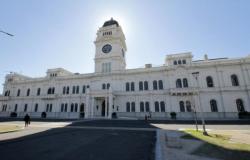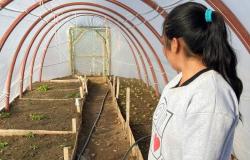June 13, 2024 – 01:05
In the midst of a worrying economic situation, Catamarca laboratories face severe obstacles that put their operations at risk. According to what the vice president of the province’s College of Biochemists, Dr. Enrique Ocampos, told Radio Valle Viejo, the lack of agreements with social works and the low level of tariffs are some of the main problems affecting the sector.
“Unfortunately we have had this problem since August of last year when there was an economic explosion with the issue of the dollar,” stated the vice president of the College of Biochemists and commented that in the month of January the materials they use suffered a sharp increase. “The reagents and supplies increased between 70% and 85%,” he said.
In that sense, he added that “this, of course, led to a debacle for the laboratories and, above all, those who use imported inputs and we still cannot recover” and stressed that to this was added that the presidential decree that forced the prepaid companies to roll back the increases they had made to the value of the fee as of March, “as in the case of OSDE, which is one of the main prepaid companies with which we work,” he exemplified.
In relation to tariffs, he warned that the normal provision of services is in danger and that currently they had to suspend the provision of two prepaid companies: “We did the suspension of social works last week because we did not reach an agreed value to what we need today.”
“Today all laboratories are making an effort because we are below the cost we need. But we are also aware that we cannot pass on the value that they passed on to us to the social works, because we know that they will not be able to pay it, and neither does the College have the position to say ‘we are going to charge the member the co-payment’ because They are not to blame either,” Ocampos argued.
In that regard, he emphasized that they are working with tariffs that are below what is necessary to cover the costs of the laboratories. “We are in that push and pull where we also try to do our part to lower the pretensions that could be had in order to be able to be calmer, in the sense that one can continue investing in the laboratories or can continue providing the same quality of service”.
Regarding the link with the Social Work of Public Employees, he highlighted that the dialogue with the current authorities is fluid, although the delay in payments continues to be a problem. “We continue to charge after 60 days, and it is something that we hope will change, because today charging after 2 months of providing the service is not the same with the inflation we are experiencing. We remain hopeful that if inflation continues to decline, one can endure those days,” he indicated.
On the other hand, the situation with PAMI is more critical, since the fees are very low and he emphasized that they do not know how long “we will be able to continue holding on with the values that we are managing today with the social work of retirees.”
Added to this is the fact that the national entity does not recognize payment for disposable material, which negatively impacts the provision of laboratory services.
He also stressed that this problem has been going on for a long time and stated that there is no dialogue with the authorities at the national level.
Regarding the current situation of the sector, he said that they have to be cautious with daily decision-making because “we cannot say that we are going to buy supplies just in case they increase, because they do not give us the costs.”
Finally, he said that “now there was an increase in FATSA (Federation of Associations of Argentine Health Workers) which we are not against, but that led to the laboratories having less and less profits, which is why many are beginning to consider whether remove people or close. The ones that worry us the most are the laboratories in the interior.
Proposes an increase of 24%
According to EC SAPEM, the impact of VAD on the pocket will be between 10 and 15%
He highlighted the need to implement changes in education
Jalil inaugurated expansion of the Andalgalá IES
Lucía Corpacci in the parliamentary debate
“They want to give delegated powers to someone who says he is the Terminator”
“We made a better law, which has a federal vision”
#Argentina






